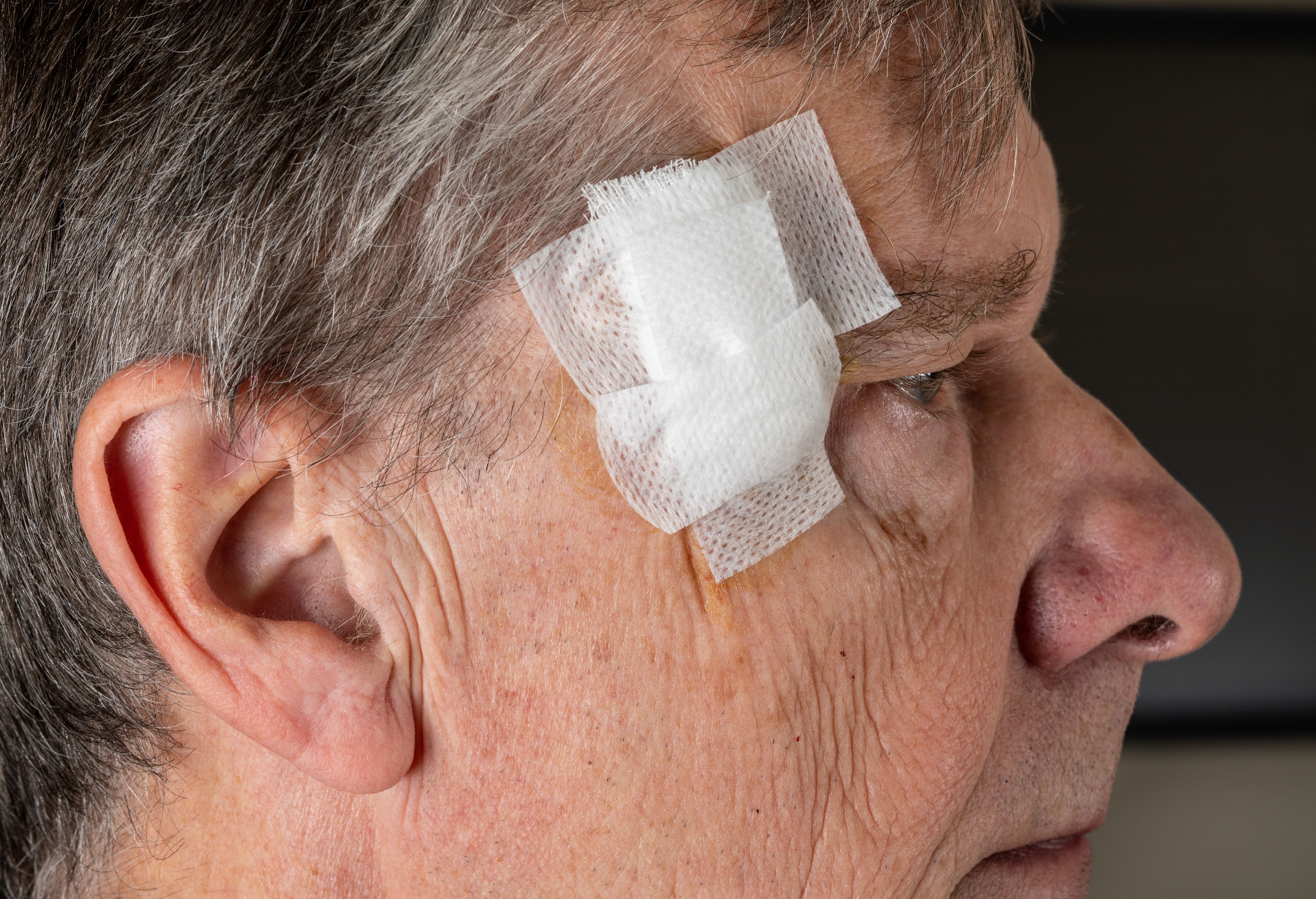
- Acne
- Actinic Keratosis
- Aesthetics
- Alopecia
- Atopic Dermatitis
- Buy-and-Bill
- COVID-19
- Case-Based Roundtable
- Chronic Hand Eczema
- Drug Watch
- Eczema
- General Dermatology
- Hidradenitis Suppurativa
- Melasma
- NP and PA
- Pediatric Dermatology
- Pigmentary Disorders
- Practice Management
- Precision Medicine and Biologics
- Prurigo Nodularis
- Psoriasis
- Psoriatic Arthritis
- Rare Disease
- Rosacea
- Skin Cancer
- Vitiligo
- Wound Care
News
Article
Facial Skin Cancer Surgery Yields Low and Improved Scores For Perceived Stigmatization, Body Image Concerns, and Psychosocial Distress
Author(s):
A review found that Mohs micrographic surgery and conventional excision yielded comparable patient reported outcomes.
Non-melanoma skin cancers (NMSCs) are on the rise, with basal cell carcinomas and squamous cell carcinomas being the most common types. Surgery remains the primary treatment for these cancers, with conventional excision and Mohs micrographic surgery being the standard approaches.1
While both methods are effective, Mohs surgery is capable of examining 100% of tissue margins during surgery, potentially leading to lower recurrence rates. However, facial surgery for NMSCs can have significant psychological implications due to changes in appearance.2
To better understand these impacts, researchers Marsidi et al conducted a study exploring the patient reported outcomes associated with facial skin cancer procedures. The study, published in the Journal of the European Academy of Dermatology and Venereology, was conducted at Leiden University Medical Center in Leiden, Netherlands, between March 2019 and July 2020.
Participants were recruited from the center's outpatient clinic and included individuals aged 18 or older requiring facial skin cancer surgery for NMSCs.
Patients were excluded from participation if they were non-Dutch-speaking or had conditions affecting self-reflection, given the nature of the data collection (patient reported outcomes). Data were collected utilizing self-report questionnaires, including the SF-12, ISDL, BICI, and FACE-Q modules, which were distributed to participants at various time points pre- and post- facial surgery.
As a result of the study, researchers found that while there was no significant change in overall quality of life over time, there was a positive trend in perceived stigmatization, body image concerns, satisfaction with facial appearance, and psychosocial distress.
Furthermore, they found that the type of surgery, Mohs versus conventional excision, did not significantly influence these outcomes.
Upon further analysis, researchers found that comorbidities and tumor characteristics influenced patient outcomes, with higher comorbidity scores associated with poorer quality of life and increased body image concerns. However, these factors did not alter the overall trend observed in psychological outcomes.
Limitations of the study, as noted by the study's authors, included incomplete data from some participants and differences in treatment groups, potentially biasing the results. Additionally, being a single-center study, the findings may not generalize to other settings or populations, they noted.
Despite these limitations, the study sheds light on the psychological impact of facial skin cancer surgery. It suggests that while surgery may initially lead to increased psychosocial distress, patients tend to recover and even experience improved satisfaction with their appearance over time.
Moving forward, researchers emphasized the need for further research to explore the role of counseling and its impact on patient satisfaction. Additionally, they wrote that investigating how cultural and health care system differences influence outcomes could provide valuable insights for improving patient care.
"In our clinical work, the focus predominantly lies on counselling on [Mohs micrographic surgery]. However, this study suggests that the outcome is identical despite the treatment type," wrote Marsidi et al. "These results also show that facial skin surgery improves satisfaction with facial appearance and psychosocial distress over time. Based on our results, focus and support should occur within the first week post-operatively, as this period exhibited a peek in dissatisfaction with facial appearance and higher psychosocial distress."
References
- Peris K, Fargnoli MC, Garbe C, Kaufmann R, Bastholt L, Seguin NB, et al. Diagnosis and treatment of basal cell carcinoma: European consensus-based interdisciplinary guidelines. Eur J Cancer. 2019. Accessed April 23, 2024.
- Subramaniam P, Olsen CM, Thompson BS, Whiteman DC, Neale RE. Anatomical distributions of basal cell carcinoma and squamous cell carcinoma in a population-based study in Queensland, Australia. JAMA Dermatol. 2017. Accessed April 23, 2024.
- Marsidi N, Ottevanger R, Demir YE, van Beugen S, Goeman JJ, Genders RE. Patient-reported outcome measurements in facial skin surgery and a comparison between Mohs micrographic surgery and conventional excisions. J Eur Acad Dermatol Venereol. April 22, 2024. Accessed April 23, 2024. doi:10.1111/jdv.20025
Newsletter
Like what you’re reading? Subscribe to Dermatology Times for weekly updates on therapies, innovations, and real-world practice tips.










2 Commerce Drive
Cranbury, NJ 08512
All rights reserved.





